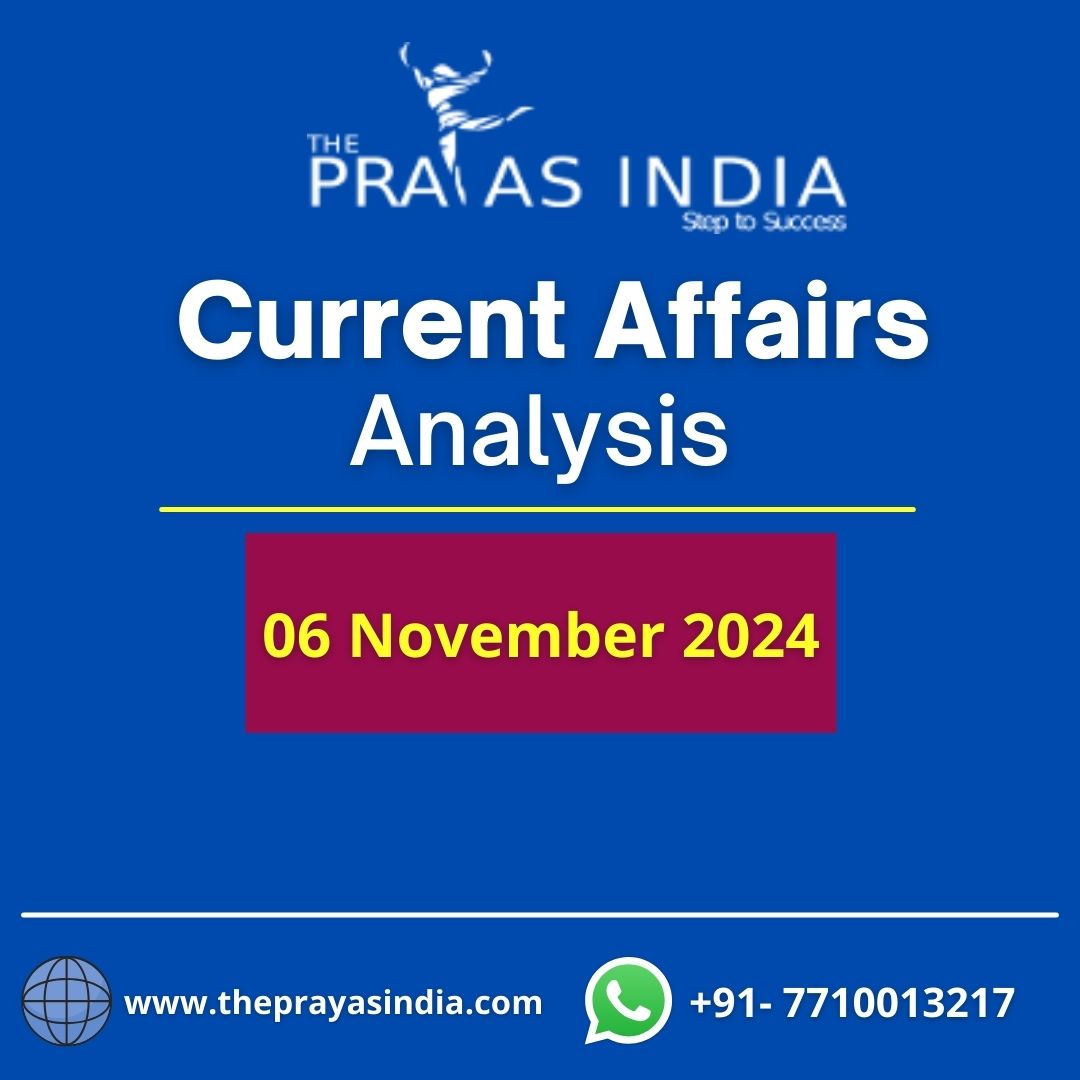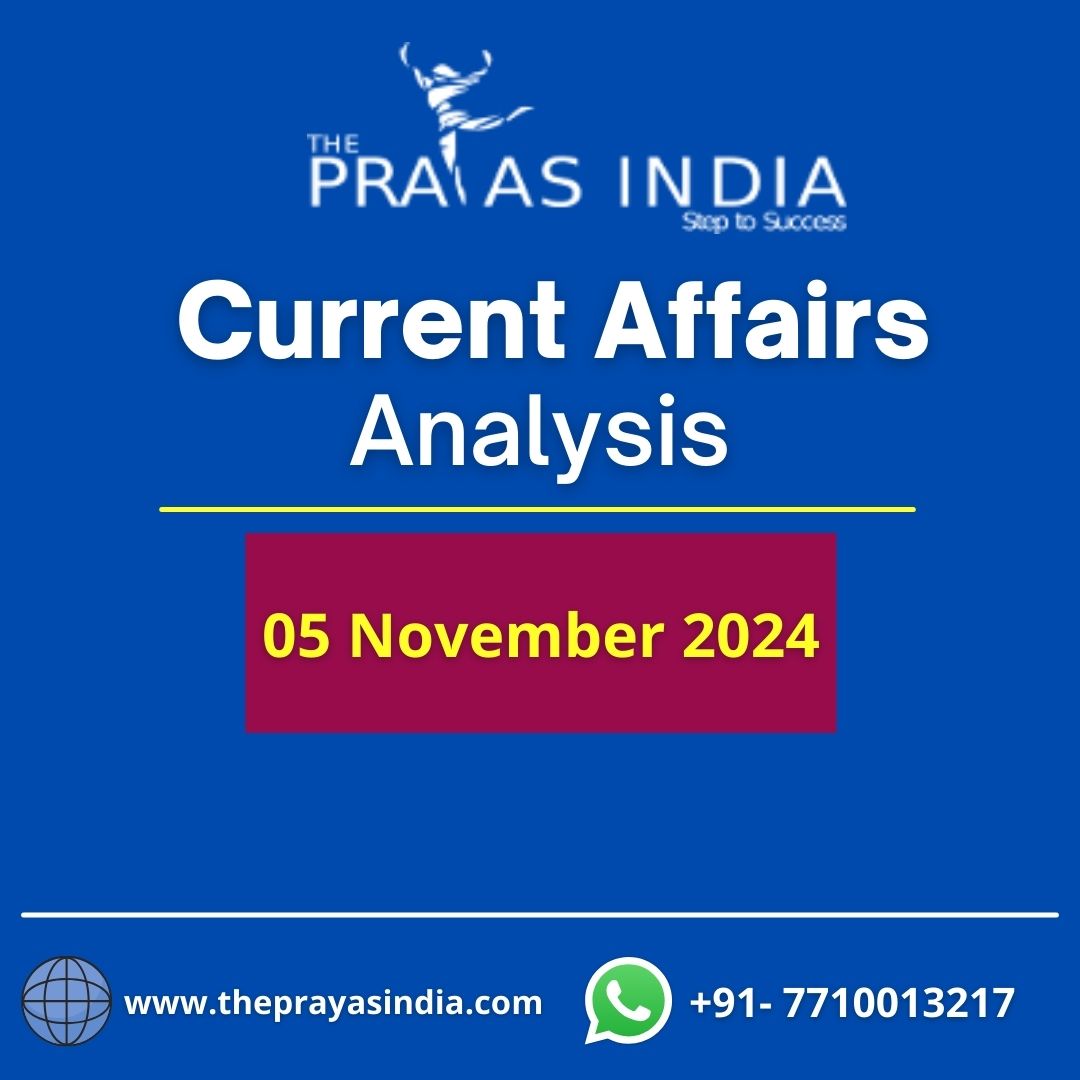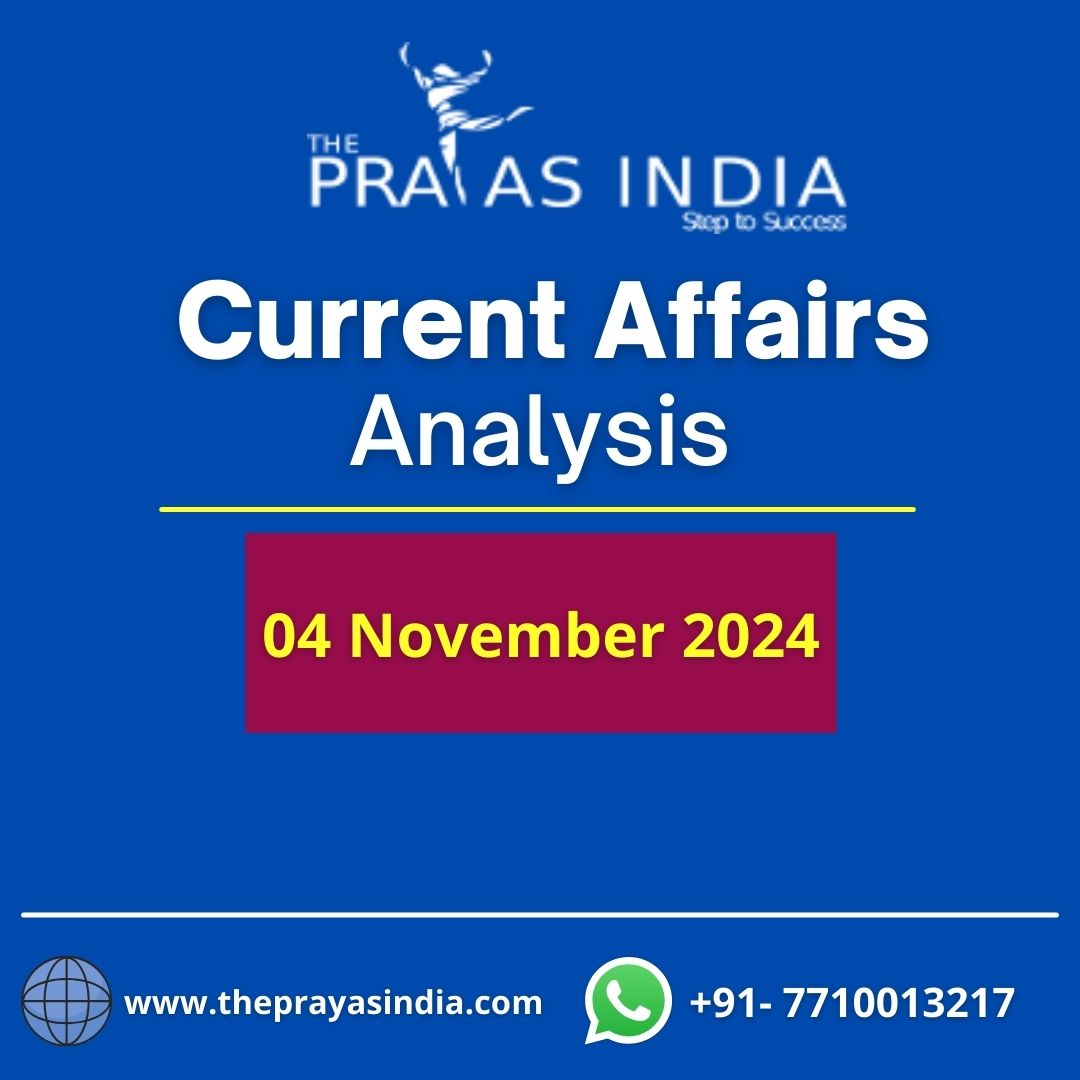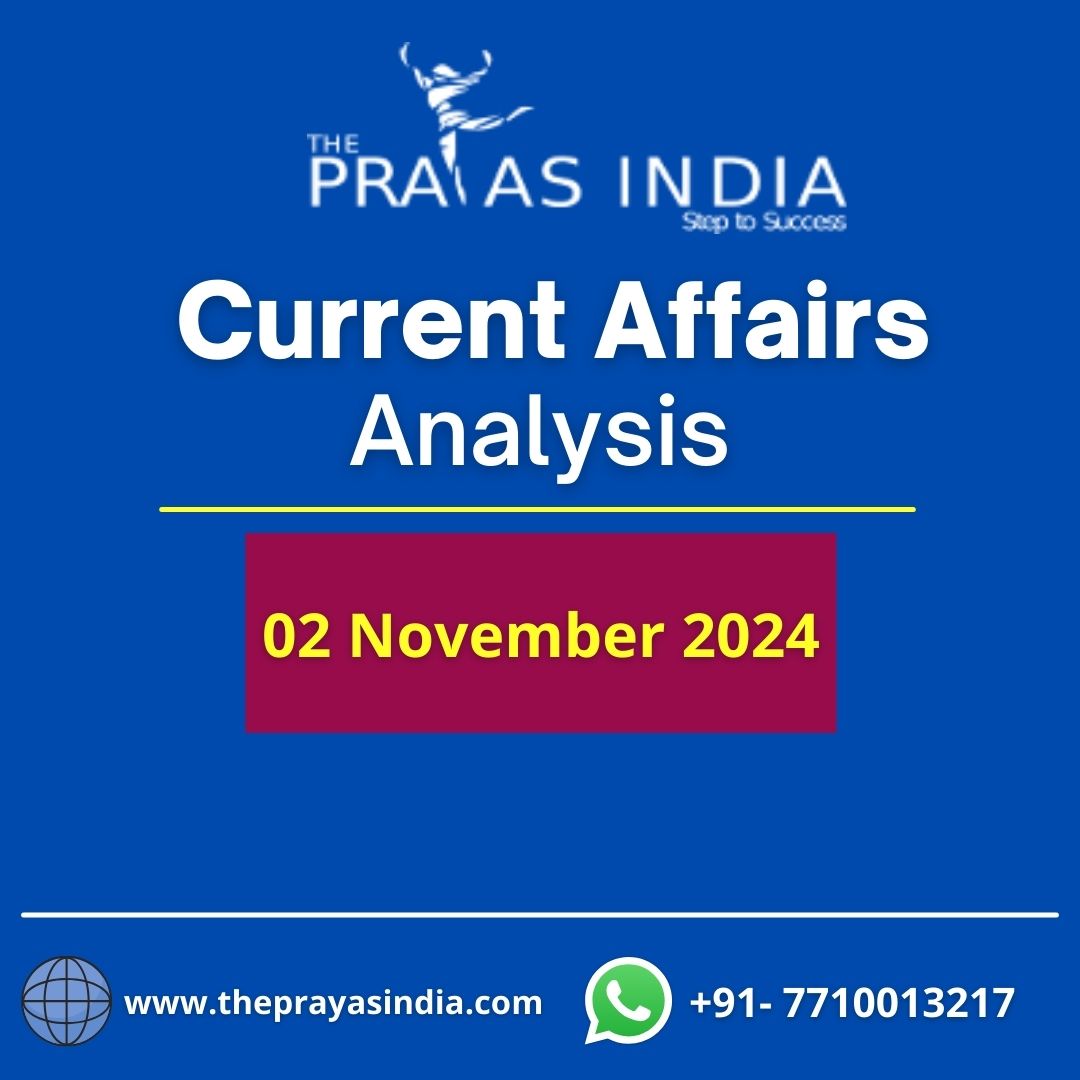DAILY CURRENT AFFAIRS ANALYSIS
| . No. | Topic Name | Prelims/Mains |
| 1. | Data Protection Bill | Prelims & Mains |
| 2. | Anti Doping Bill | Prelims & Mains |
| 3. | Fair and Remunerative Price | Prelims & Mains |
| 4. | Central Vigilance Commissioner | Prelims & Mains |
1 – Data Protection Bill: GS II – Government Policies and Interventions
Context:
- In order to create a “comprehensive legal framework” for policing the online world, the government withdrew the Personal Data Protection Bill from Parliament. This framework will include separate laws on data privacy, the internet ecosystem as a whole, cybersecurity, telecom laws, and the use of non-personal data to foster innovation in the nation.
Important suggestions:
- The current title of the “Personal Data Protection Bill” should be changed to reflect this change. This is meant to represent that the bill will also deal with non-personal data, such as personal data that has been anonymized, in order to better safeguard privacy.
- Change the language in the clause prohibiting the transfer of personal information outside of India to read, “Sensitive personal information shall not be shared with any foreign government or agency unless such sharing is permitted by the central government.”
- No social media platform should be permitted to function in India until its parent firm, which owns the technology that underpins its services, establishes a presence there.
- It suggests creating a different regulatory agency specifically to oversee the media.
- If de-identified data is re-identified by anyone, they might face up to a 3-year prison sentence, a Rs. 2 lakh fine, or both.
- The Bill’s name should be changed to “personalization” instead.
- Only in extraordinary cases may the central government exempt any government agency from the law.
How do these recommendations stack up against EU law?
- In several ways, the JCP’s suggestions for the Personal Data Protection Bill are extremely comparable to international norms like the General Data Protection Regulation of the European Union.
Similarities:
- Consent: In order for users to opt-in or out of the way their data is handled, they must give their informed consent.
- Breach: Within 72 hours of the disclosure, authorities must be notified of a breach.
- There is a two-year transition period before the GDPR’s requirements take effect.
- Any natural or legal person, governmental authority, agency, or entity that chooses the purposes and methods of data processing is referred to as a “data fiduciary” under EU legislation. It also includes NGOs in India.
- The committee has advised that a Data Protection Authority (DPA) be established:
- Both personal and non-personal data will be handled by the Data Protection Authority (DPA).
- DPA membership: A selection committee led by the Cabinet Secretary will make recommendations to the Union government, which will then designate the DPA’s chairperson and other members.
- The Indian Attorney General, as well as the IT and law secretaries, will also be included on the committee.
- Members proposed by the Center include an independent expert and one director each from the IIT and the IIM.
Additional Highlights include:
- The law seeks to define the flow and use of personal data, protect the rights of those whose data is processed, establish a framework for cross-border transfers, hold data processors accountable, and propose remedies for improper and harmful processing.
- Additionally, it aims to provide the government the authority to exempt its investigative agencies from the law’s requirements, a move that the opposition MPs who filed their dissent notes have vehemently opposed.
Source The Indian Express
2 – Anti Doping Bill: GS II – Government Policies and Interventions
Context:
- A Bill to establish a legal framework for the National Anti-Doping Agency (NADA) and National Dope Testing Laboratory was approved by the Indian Parliament yesterday.
What are Bill’s Main Elements?
- Doping is prohibited by the Bill from being used by athletes, athlete support staff, and other people in competitive sports.
Violations’ Repercussions:
- Anti-doping rule violations can lead to results being disqualified, the loss of medals, points, and prizes, the ineligibility to compete in an event for a set amount of time, financial penalties, etc.
- National Anti-Doping Agency to Have Statutory Basis: The Bill outlines how to set up this organisation as a statutory authority.
- A Director General chosen by the federal government will serve as its leader. The Agency’s duties include promoting anti-doping research and planning, implementing, and overseeing anti-doping initiatives. It also conducts investigations into anti-doping rule infractions.
- National Board for Anti-Doping in Sports: The Bill creates a National Board for Anti-Doping in Sports to advise the government on anti-doping laws and adherence to anti-doping agreements made internationally.
- The Board will supervise the Agency’s operations and provide it directives.
- Dope Testing Laboratories: It will be assumed that the current National Dope Testing Facility is the primary dope testing laboratory.
- More National Dope Testing Laboratories could be established by the federal government.
What is Bill’s Importance?
- The bill seeks to improve agency coordination in the fight against doping as well as provide athletes with time-bound justice.
- It also aims to strengthen India’s will to uphold its international commitments to clean sports.
- The bill would contribute to the development of a reliable, impartial system for anti-doping adjudication.
What are the Problems with the Bill?
- The bill would also give NADA and the National Dope Testing Laboratory (NDTL) legal validity.
- The Director General’s qualifications are not listed in the Bill and must be announced by rules.
- The Director General may be fired by the federal government for misconduct, incompetence, or “some other ground.”
- Giving the central government power over these clauses would compromise the Director General’s independence.
- Additionally, this violates the World Anti-Doping Agency’s directive that such organisations must have operational independence.
- According to the Bill, the Board may dismiss Disciplinary Panel and Appeal Panel members for reasons that will be outlined in regulations and not in the Bill.
- Furthermore, there is no obligation to offer them a chance to be heard. This might interfere with these panels’ ability to operate independently.
NADA:
- On November 24, 2005, the National Anti-Doping Agency (NADA) was established as a society under the Societies Registration Act of 1860 with the goal of establishing drug-free sports in India.
- The main goals are to enforce anti-doping regulations in accordance with the WADA (World Anti-Doping Agency) code, control the dope control programme, support education and research, and raise awareness of doping and its negative effects.
- Planning, organising, executing, monitoring, and advocating advances in doping control are all tasks that fall under the purview of the NADA. Other tasks include cooperating with other pertinent national organisations, agencies, and other anti-doping organizations.
WADA:
- The World Anti-Doping Agency (WADA) was established by the International Olympic Committee in November 1999.
- The UNESCO International Convention against Doping in Sport acknowledges WADA (2005).
- WADA’s main responsibility is to create, harmonise, and coordinate anti-doping rules for all sports and nations.
- The World Anti-Doping Code (WADA Code) and its requirements are properly implemented, investigations into doping incidents are conducted, doping research is done, and anti-doping policies are properly explained to athletes and other relevant staff.
Source The Hindu
3 – Fair and Remunerative Price: GS III – Indian Agriculture
Context:
- The Fair and Remunerative Price (FRP) of sugarcane for the sugar season 2022–23 (October–September) has been approved by the Cabinet Committee on Economic Affairs at its meeting here on Wednesday, which was presided over by Prime Minister Narendra Modi. The FRP is set at 305 per quintal. With a basic sugar recovery rate of 10.25 percent, sugarcane is the source of the money. A premium of 3.05 per quintal for every 0.1 percent improvement in sugar recovery over and above 10.25 percent as well as a 3.05 per quintal drop in FRP for every 0.1 percent decline in recovery have also been declared by the Center.
About the FRP:
- FRP is the amount set by the government that mills are required by law to pay farmers for the cane that they buy from them.
- Farmers have the opportunity to pay the FRP in instalments by entering into a contract with mills.
- Payment delays may result in interest charges of up to 15% per year, and the sugar commissioner may attach mill facilities to recoup unpaid FRP as revenue recovery dues.
- The Sugarcane Control Order, 1966, published under the Essential Commodities Act (ECA), 1955, specifies that FRP must be paid nationwide within 14 days of the cane’s delivery date.
- The Cabinet Committee on Economic Affairs announced the decision following the Commission on Agricultural Costs and Prices’ (CACP) recommendation (CCEA).
- A department within the Ministry of Agriculture and Farmers Welfare is known as CACP. It is an advisory committee, and the Government is not required to heed its suggestions.
- India’s Prime Minister serves as the organization’s chair.
- The Rangarajan Committee’s study on restructuring the sugarcane industry served as the foundation for the FRP.
What factors are taken into account when announcing FRP?
- The price of producing sugarcane
- Return to alternative crop growers and the general trend of agricultural commodity prices
- sugar being offered to consumers at a reasonable price
- Price at which sugar manufacturers sell sugar made from sugarcane
- sugar is recovered from sugarcane.
- The profit from the sale of byproducts like molasses, bagasse, and press mud or the value that is ascribed to them
- Sugarcane growers should have adequate margins to account for risk and earnings.
FRP payment methods:
- The FRP is based on the cane’s ability to recover sugar.
- For the sugar season of 2021–2022, FRP has been set at Rs 2,900 per tonne at a base recovery of 10%.
- The ratio of sugar produced to cane crushed, stated as a percentage, is called sugar recovery.
- Higher recovery results in higher FRP and higher sugar production.
About the crop of sugarcane:
Temperature: hot and muggy with a range of 21–27°C.
Rainfall: between 75 and 100 cm.
- The soil is a deep, rich loam.
- States that produce the most sugarcane are Uttar Pradesh, Maharashtra, Karnataka, Tamil Nadu, and Bihar.
- After Brazil, India is the second-largest producer of sugarcane.
- It may be cultivated on any type of soil, from clay loam to sandy loam, as long as it has good drainage.
- From planting to harvesting, it requires manual labour.
- It is the primary source of gur (jaggery), khandsari, molasses, and sugar.
- Two of the government measures to assist sugarcane production and the sugar industry are the Scheme for Extending Financial Assistance to Sugar Undertakings (SEFASU) and the National Policy on Biofuels.
Source The Indian Express
4 – Central Vigilance Commissioner: GS II – Constitutional Bodies
Context:
- A year after the position became vacant, Suresh N. Patel was appointed as the Central Vigilance Commissioner (CVC) on Wednesday.
Background of CVC:
- The Santhanam Committee’s recommendations led to the creation of the Central Vigilance Commission, which was given legal status by the 2003 CVC Act. It was intended to stop government corruption and make officials accountable for their dishonest deeds.
Objectives of the CVC:
- In order to prevent corruption in All India Services, Central Services, PSUs, and other departments, it is regarded as the coordinating authority.
- It is in charge of the Delhi Special Police in corruption cases.
- It examines the government’s authorizations for prosecution.
- It suggests taking disciplinary action against senior Group A, Group B, All India Services, etc. personnel.
- It is essentially regarded as the focal point for fighting corruption on a national scale.
CVC’s effectiveness:
- According to its mission, the CVC has proven to be a successful institution in combating corruption. It has demonstrated this in the past with the following deeds.
- It has in the past resulted in the easy appointment of significant officers to various roles.
- It has previously taken remarkable action against high-ranking officials, senior employees, and even numerous politicians.
- Every year, it organises Vigilance Week to raise awareness about the dangers of corruption.
- It can perform “Suo Moto” and serves as a civil court.
- As a result of the CVC’s recruitment by an impartial committee made up of the PM, the Home Minister, the Leader of the Opposition, etc., its independence is preserved.
Several issues:
- However, due to the following ineffectiveness, the hope that CVC would be an institution that could serve as a “One Stop Solution” to combat corruption in the nation has been disproven.
- The organizations and ministries are not required to abide by the CVC’s decisions.
- CVC’s influence and efficacy have decreased because to a very low conviction rate.
- The cases that CVC handles take a very long time, hence it is ineffective as a deterrence.
- Since CVC is solely recognised as an advisory body and lacks the authority to order the CBI to open investigations into any officer with the rank of Joint Secretary or higher, it is frequently seen as a helpless agency.
- Despite being “somewhat independent” in how it operates, the CVC lacks both the resources and the authority to act on charges of corruption.
- The majority of the time, it is unclear what the organisations’ domains and jurisdictions are.
- Organizational diversity results in task duplication and lowers performance.
- A long time has passed since the Central Vigilance Commissioner position was filled.
- The necessity for new institutions like the Lokpal is growing as a result of the inability of the CVC and other current organisations to effectively address the problem of corruption. Concerns need to be raised about the CVC’s authority in relation to its mandate, financial independence, and expansion of its otherwise limited advising role.
Source The Hindu




